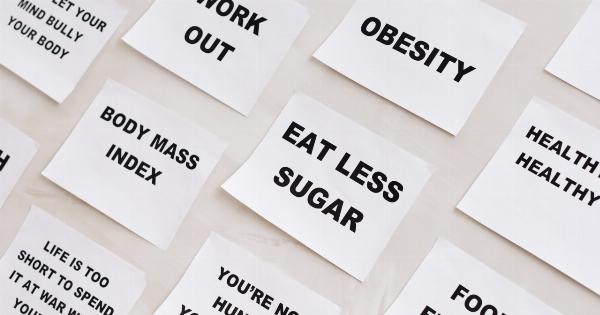Heartburn is a common condition that affects millions of people worldwide. It is characterized by a burning sensation in the chest area, usually after eating or lying down.
While occasional heartburn is normal, chronic or recurring symptoms can be disruptive and uncomfortable.
Fortunately, managing heartburn can be as simple as making changes to your diet. Certain foods and beverages are known to trigger heartburn symptoms, while others can help alleviate them.
By following a heartburn-friendly diet, you can stop heartburn in its tracks and enjoy a more comfortable life.
Understanding Heartburn
Before we delve into dietary modifications, let’s understand what causes heartburn. Heartburn occurs when stomach acid backs up into the esophagus, leading to irritation and inflammation.
This often happens due to a weakened esophageal sphincter, the muscle that separates the stomach from the esophagus.
While various factors can contribute to a weakened esophageal sphincter, diet plays a significant role. Certain foods and beverages can relax the sphincter, allowing stomach acid to flow back up.
Likewise, they can stimulate the production of acid in the stomach, exacerbating heartburn symptoms.
Foods to Avoid
By eliminating or reducing certain foods from your diet, you can prevent heartburn flare-ups. Here are some common culprits you should avoid:.
1. Spicy Foods
Spicy foods, such as chili peppers and hot sauces, can irritate the lining of the esophagus and trigger heartburn symptoms. Avoiding or minimizing their consumption can provide relief.
2. Citrus Fruits
While citrus fruits like oranges and grapefruits are packed with vitamins, they are highly acidic. The acidity can aggravate heartburn symptoms, so it’s best to opt for low-acid alternatives like apples and bananas.
3. Tomatoes
Tomatoes and tomato-based products, such as pasta sauces and ketchup, are highly acidic and can contribute to heartburn. Consider using alternative sauces or reducing the amount of tomato-based products in your meals.
4. Onions and Garlic
Onions and garlic are flavorful additions to many dishes, but they can also trigger heartburn. If possible, use smaller amounts or opt for milder alternatives like herbs and spices.
5. Fatty Foods
Fatty foods, such as deep-fried and greasy items, can slow down the digestion process and relax the esophageal sphincter, leading to heartburn. Choose leaner options and opt for cooking methods like grilling and baking.
6. Chocolate and Sweets
Chocolate contains a compound called theobromine, which can relax the esophageal sphincter. Additionally, high-sugar desserts can lead to increased acid production in the stomach. Limit your intake of chocolate and opt for healthier dessert options.
7. Carbonated Beverages
Carbonated beverages, such as soda and sparkling water, can cause bloating and increase pressure on the esophageal sphincter. This can result in the backflow of stomach acid and trigger heartburn. Stick to non-carbonated drinks like water or herbal tea.
8. Caffeinated Beverages
Caffeine can relax the esophageal sphincter and stimulate acid production in the stomach. Avoid or limit your intake of coffee, tea, and other caffeinated beverages. If you need a morning pick-me-up, consider decaffeinated options.
9. Alcohol
Alcohol not only relaxes the esophageal sphincter but also increases stomach acid production. This combination can contribute to frequent heartburn. Moderate or eliminate alcohol consumption to reduce symptoms.
10. Mint
While mint is known for its soothing properties, it can relax the esophageal sphincter and worsen heartburn symptoms for some individuals. If you experience heartburn after consuming mint or mint-flavored products, it’s best to avoid them.
Heartburn-Friendly Foods
Now that we’ve covered the foods to avoid, let’s explore heartburn-friendly options. These foods can help soothe the irritation and minimize acid reflux:.
1. Oatmeal
Oatmeal is a fiber-rich, low-acid breakfast option that can help absorb excess acid in the stomach and reduce heartburn symptoms. Avoid adding high-acid fruits like berries and enjoy a bowl of plain oatmeal instead.
2. Ginger
Ginger has long been used as a natural remedy for digestive issues, including heartburn. Its anti-inflammatory properties can help calm the esophagus and reduce discomfort. Sip on ginger tea or incorporate fresh ginger into your cooking.
3. Leafy Greens
Leafy greens like spinach, kale, and lettuce are excellent sources of vitamins and minerals. They are also low in fat and calories, making them ideal for individuals with heartburn. Include a generous portion of leafy greens in your daily diet.
4. Non-citrus Fruits
While citrus fruits are a no-go, non-citrus fruits like melons, apples, and bananas are generally well-tolerated by individuals with heartburn. They provide necessary nutrients without triggering acid reflux.
5. Lean Proteins
Protein is an essential component of a healthy diet, but certain protein sources can exacerbate heartburn. Opt for lean options like chicken, turkey, fish, and tofu, which are less likely to cause reflux.
6. Whole Grains
Whole grains, such as brown rice, quinoa, and whole wheat bread, are rich in fiber and can promote healthy digestion. They are less likely to cause heartburn compared to refined grains like white bread and pasta.
7. Non-dairy Milk Alternatives
Certain individuals with heartburn experience symptoms after consuming dairy products. Try non-dairy milk alternatives like almond milk or coconut milk to see if they alleviate your symptoms.
8. Aloe Vera Juice
Aloe vera juice has been used for its soothing properties and can help calm an irritated esophagus. It is essential to choose a pure, food-grade aloe vera juice without added sugars for maximum benefits.
9. Plain Yogurt
While dairy products can trigger heartburn in some individuals, plain yogurt may have a neutralizing effect on stomach acid. Choose yogurt without added sugars or flavors for optimum results.
10. Herbal Teas
Various herbal teas, such as chamomile, licorice, and slippery elm, can help reduce heartburn symptoms. Sip on a warm cup of herbal tea after meals or whenever you experience discomfort.
Additional Tips for Managing Heartburn
Modifying your diet is a crucial step in stopping heartburn, but a few extra lifestyle changes can further aid in managing your symptoms:.
1. Eat Smaller Meals
Instead of consuming large meals, opt for smaller, more frequent meals throughout the day. This can prevent overeating and reduce your risk of experiencing heartburn.
2. Avoid Eating Late at Night
Allow at least two to three hours between your last meal of the day and bedtime. This helps ensure that your stomach is empty when you lie down, minimizing the chances of acid reflux.
3. Elevate the Head of Your Bed
Placing blocks or using a wedge pillow to elevate the head of your bed can help gravity keep stomach acid down during sleep. This can provide relief from nighttime heartburn.
4. Maintain a Healthy Weight
Excess weight can put pressure on the abdomen and contribute to heartburn. By maintaining a healthy weight through regular exercise and a balanced diet, you can reduce the frequency and severity of symptoms.
5. Avoid Tight Clothing
Tight-fitting clothing can compress the abdomen and increase the risk of acid reflux. Opt for loose, comfortable clothing that does not constrict the stomach area.
Conclusion
While heartburn can be a bothersome condition, adopting a heartburn-friendly diet can help you regain control over your symptoms. By avoiding trigger foods and incorporating soothing options, you can effectively stop heartburn in its tracks.
Remember, everyone’s triggers may differ, so pay attention to your body and make adjustments accordingly. With a few dietary and lifestyle modifications, you can enjoy a life free from the discomfort of heartburn.





























